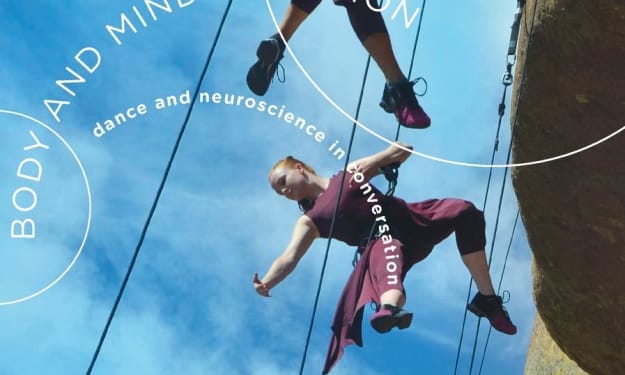Content warning
This story may contain sensitive material or discuss topics that some readers may find distressing. Reader discretion is advised. The views and opinions expressed in this story are those of the author and do not necessarily reflect the official policy or position of Vocal.
Exploring the Impact of Social Media on Society
The Social Media Mind (Book)
Social media has become an integral part of our daily lives, transforming the way we communicate, share information, and connect with others. In his book "The Social Media Mind," David Amerland delves into the profound impact of social media on society. This article explores the various dimensions of this impact and sheds light on the implications it has for individuals, communities, and the world as a whole.
1. Introduction: The Rise of Social Media
Social media platforms, such as Facebook, Twitter, Instagram, and LinkedIn, have witnessed exponential growth over the past decade. They have revolutionized the way we connect with others, share ideas, and consume information. The widespread adoption of smartphones and internet access has further accelerated the reach and impact of social media.
2. The Power of Connection and Community
One of the most significant impacts of social media is its ability to foster connections and build communities. It has bridged geographical barriers, allowing individuals from different parts of the world to interact and form relationships. Social media platforms provide a space for people to share their experiences, interests, and passions, creating virtual communities that transcend physical boundaries.
3. Social Media and Individual Identity
Social media platforms have influenced the way individuals construct and present their identities. Users curate their profiles, selectively sharing aspects of their lives that align with their desired image. This shaping of online personas raises questions about authenticity and the impact on individuals' self-esteem and self-worth.
4. Influence on Communication Patterns
The advent of social media has transformed the way we communicate. It has facilitated real-time, instantaneous communication, enabling people to connect and engage in conversations across distances. However, the brevity and speed of social media communication have also given rise to concerns about the quality and depth of interactions.
5. The Role of Social Media in Activism and Social Movements
Social media has emerged as a powerful tool for activism and social change. It has facilitated the rapid dissemination of information, mobilization of communities, and coordination of social movements. Hashtags and viral campaigns have played a pivotal role in raising awareness about important causes and holding institutions accountable.
6. Social Media and Mental Health
While social media offers numerous benefits, it also poses risks to mental health. Excessive use of social media, comparison with idealized representations, cyberbullying, and the fear of missing out (FOMO) can contribute to feelings of anxiety, depression, and loneliness. Balancing the positive aspects of social media with mindful usage becomes crucial for maintaining mental well-being.
7. Privacy and Security Concerns
The collection and utilization of personal data by social media platforms have raised concerns about privacy and security. Users' personal information and online behaviors are tracked, analyzed, and monetized, raising questions about data protection and the ethical use of user data.
8. The Dark Side of Social Media
Social media has also given rise to various negative phenomena. Cyberbullying, online harassment, spreading misinformation, and the amplification of hate speech are some of the dark aspects associated with social media. Addressing these issues requires collective efforts from platforms, users, and society as a whole.
9. Social Media and Political Landscapes
Social media has significantly influenced political landscapes around the world. It has become a platform for political discourse, mobilization, and the dissemination of propaganda. The impact of social media on elections, political polarization, and the spread of misinformation has become a topic of intense debate and scrutiny.
10. Business and Marketing in the Digital Age
Social media has revolutionized the business and marketing landscape. It has provided businesses with a powerful platform to engage with customers, build brand awareness, and drive sales. Influencer marketing, targeted advertising, and customer feedback through social media have transformed traditional marketing strategies.
11. Education and Learning through Social Media
Social media platforms offer opportunities for informal learning and knowledge sharing. Educational institutions and educators utilize social media to engage students, share resources, and facilitate discussions. However, concerns about the credibility of information and the blurring of lines between personal and professional spaces persist.
12. Impact on Cultural Exchange and Global Awareness
Social media has facilitated the exchange of ideas, cultures, and perspectives on a global scale. It has connected people from diverse backgrounds, enabling cross-cultural understanding and promoting empathy. The sharing of stories and experiences has the potential to bridge gaps and foster a more inclusive society.
13. Social Media's Effect on News and Information Consumption
The rise of social media has disrupted traditional news consumption patterns. Users now rely on social media platforms for news updates, often bypassing traditional media outlets. However, the spread of misinformation and the creation of echo chambers pose challenges to the quality and accuracy of information.
14. Ethical Considerations in the Digital Era
The pervasive nature of social media raises ethical concerns. Questions about consent, online behavior, data privacy, and the responsibility of platforms to combat harmful content have become central to discussions on digital ethics. Striking a balance between innovation, freedom of expression, and the well-being of individuals is a pressing challenge.
15. Conclusion
The impact of social media on society is undeniable. It has transformed the way we connect, communicate, and perceive the world around us. While it offers tremendous opportunities for positive change, it also comes with risks and challenges. By understanding and addressing these complexities, we can harness the potential of social media to create a more connected, informed, and inclusive society.
FAQs
1. Can social media have a negative impact on mental health?
Yes, excessive use of social media, cyberbullying, and the constant comparison with others can contribute to feelings of anxiety, depression, and loneliness. It is important to use social media mindfully and balance online interactions with offline experiences.
2. How does social media influence political landscapes?
Social media has become a platform for political discourse, mobilization, and the spread of propaganda. It can influence public opinion, shape electoral outcomes, and contribute to political polarization.
3. What are some privacy concerns associated with social media?
Social media platforms collect and analyze users' personal data, raising concerns about privacy and data protection. Users should be cautious about the information they share and familiarize themselves with the privacy settings offered by each platform.
4. How has social media impacted business and marketing?
Social media has revolutionized business and marketing strategies. It provides a platform for businesses to engage with customers, build brand awareness, and drive sales. Influencer marketing and targeted advertising have become popular strategies inreaching and engaging the target audience.
5. Is social media reliable for news consumption?
Social media has changed the way people consume news, but it also poses challenges. While it provides instant access to news updates, there is a risk of misinformation and the creation of echo chambers. It is important to verify information from credible sources and cross-check facts before accepting them as true.
In conclusion, social media has had a profound impact on society, shaping the way we connect, communicate, and interact with the world. It has brought people together, enabled activism, transformed business and marketing practices, and facilitated the exchange of ideas and cultures. However, it also comes with challenges such as privacy concerns, mental health implications, and the spread of misinformation. By navigating these complexities and using social media mindfully, we can harness its potential for positive change and create a more connected and informed society.
Link to buy the Book from Amazon:
https://amzn.to/46FBdrr






Comments
There are no comments for this story
Be the first to respond and start the conversation.